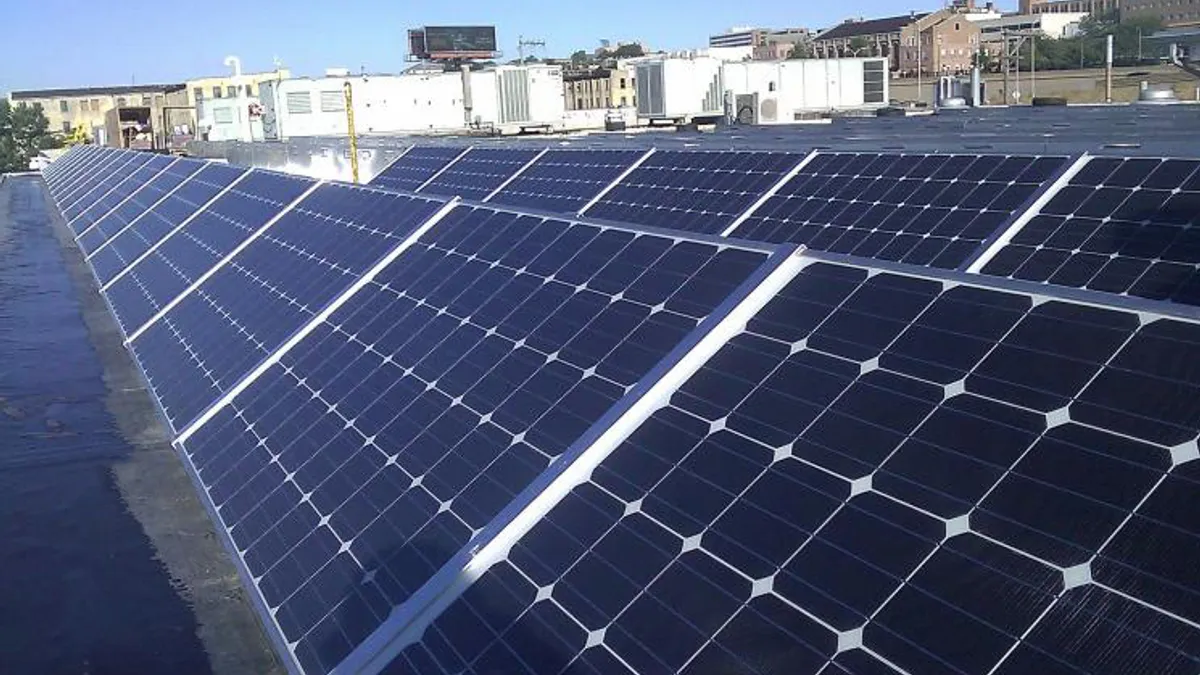Dive Brief:
- The board of Salt River Project (SRP), an Arizona municipal utility, has voted to increase electric rates and approved controversial adder charges on rooftop solar owners, AZ Central reports.
- Solar customers who filed paperwork for solar installation after Dec. 8, 2014 will see their monthly bills rise about $50, according to reports, due mostly to a new "demand charge" based on their peak power usage during the month. Overall residential rates will increase an average of 3.9%, or about $5 per month for a typical SRP customer.
- Facing about 200 angry solar owners, the board decided to allow the 15,000 SRP customers with rooftop systems already installed to keep their current rate structure, without the demand charges, for 20 years. SRP had been prompted to change its initial solar charge proposal after about 500 demonstrators turned out to protest at an Arizona regulatory hearing.
Dive Insight:
Arizona is ground zero for some of the most contentious solar battles in the nation. Late last year, state regulators rejected a controversial bid from Arizona Public Service to own rooftop solar, and Tucson Electric Power is in a spat this week with solar advocates over what the true cost of solar is.
Thursday's SRP board meeting on was no exception to the intrigue. About 200 protesters and solar owners turned out to pressure the municipal utility not to increase charges on solar customers, saying that the fees are unfair and will hurt solar's value proposition.
When the board voted to increase fees on rooftop system owners, solar industry representatives told the SRP board they will fight what they see as an illegal overreach of utility jurisdiction in the courts.
"SolarCity will have no choice but to challenge the decision in the courts," said Thad Kurowski, SolarCity's director of policy and electricity markets, according to AZ Central. "You are eliminating the ability to go solar in SRP service territory and doing it in a way that can't be justified."
AZ Central reports that the key issue in the meeting was whether it is fair to single out rooftop solar owners. SRP claims it is because those customers have a unique relationship with the grid. Utility representatives say the new demand charge will be easy to control if customers take initiative to decrease their peak electricity usage.
"The biggest driver of demand will be the largest appliances in the house," said Michael Lowe, SRP chief customer executive, according to the report. "By putting those on timers, you will get a lot of (electricity) load off peak."













